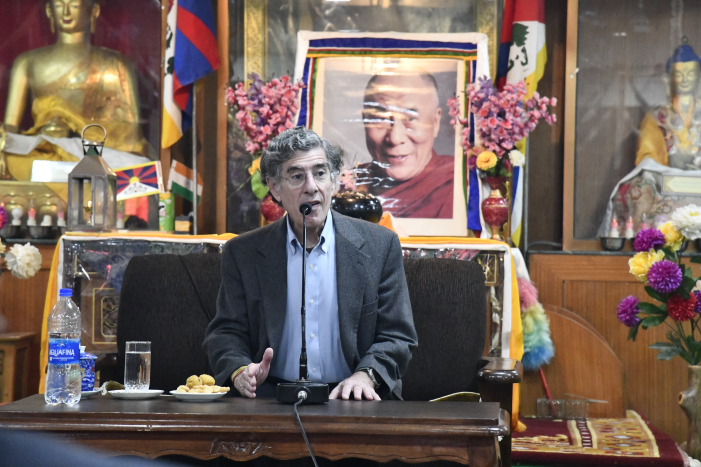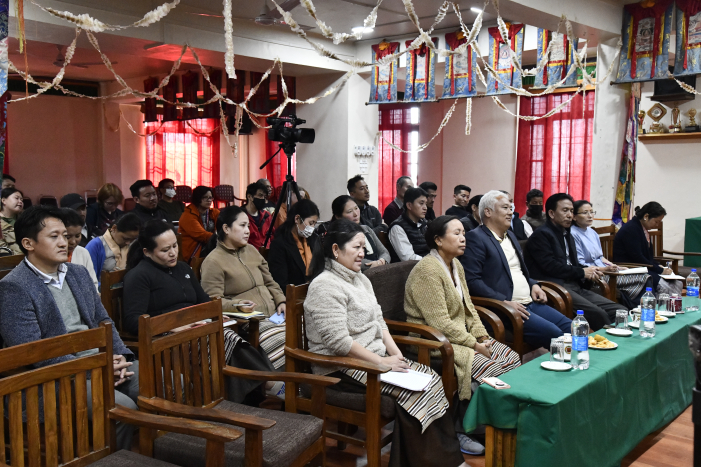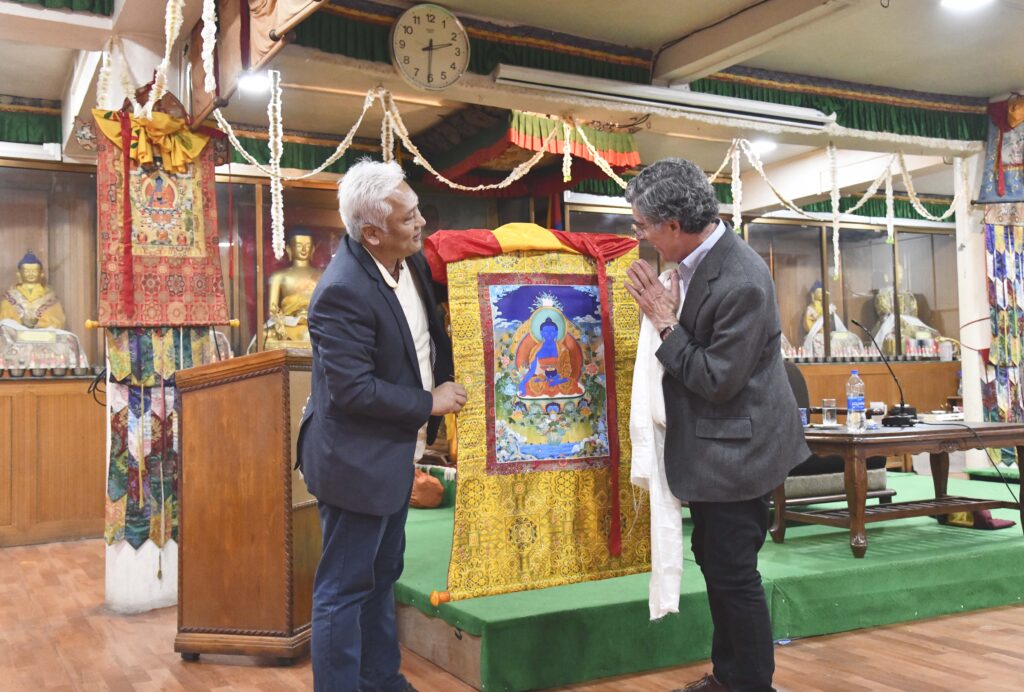
On October 24, 2022, world-renowned Professor Dr. Richard Davidson was invited to Men-Tsee-Khang, Institute by our honourable director, Mr. Thupten Tsering-la, and spoke on an overview of the (Center for Healthy Minds) CHM’s work on well-being and the Tukdam project founded by him. The programme was held in Men-Tsee-Khang College hall in the presence of Sowa-Rigpa doctors and Tibetan Astro-science practitioners, our college faculty, and students. It is also virtually joined by Bangalore Men-Tsee-Khang College in South India and participants from many branch clinics throughout India.
In his talk, Professor Richie mentioned that they chose the word “well-being” because everyone cannot be happy all the time. He stated that he had witnessed His Holiness cry while picturing the pain of others and praying for their well-being. He then made an important statement: “Well-being is a skill; it can be trained.” He also elucidated their famed ‘Four Pillars of Well-being’ in explaining the four pillars: awareness, connection, insight, and purpose. He had wonderfully articulated relevant Buddhist notions and philosophies in expounding each pillar. Speaking on awareness, he shared, “47% of our waking hours are spent not paying attention, and we are significantly less happy at those times.” He then shared with the audience an important research article published over a decade ago titled, “A Wandering Mind Is an Unhappy Mind.” In explaining the second pillar, connection, he related a study done on 6-month-old children showing preference for compassion with the Buddhist notion of Buddha nature, the basic human goodness.

Following the overview of CHM’s work on wellbeing, the Professor switched over to the Tukdam project. Since the inception of Tukdam research in 1995, CHM has been playing a pioneering and pivotal role in its research. The Professor remarked, “It began with the request of His Holiness to investigate Tukdam (during the 5th Mind and Life dialogue). He continues, “Tukdam represents a real challenge to modern science. The Buddhist talks about subtle levels of awareness. “
Over the years of research, nearly four dozen (till date) Tukdam cases have been subjected to the research. The professor reminded us that “The western world sees death as a binary.” He then remarked that this slowed rate of decomposition in the cases of Tukdam is a proven thing now. He highlighted the recent developments in the workings of Tukdam research and also touched upon the longitudinal study, with research beginning on the elderly practitioners whilst alive.
Following the talk, the floor was opened for questions. There were some interesting questions on the topic, with attempts to score commonality between the four pillars and subjects discussed in Tibetan Medicine, and also about understanding subjects like the mind in the light of neuroscience, and also about decoding Tukdam under the lenses of modern scientific equipment. The professor was kind enough to entertain us all.

This momentous and wonderful event came to a close with a souvenir presented by the honourable director. The Professor was toured around our pharmaceutical department after the event before concluding his visit to the institute.

